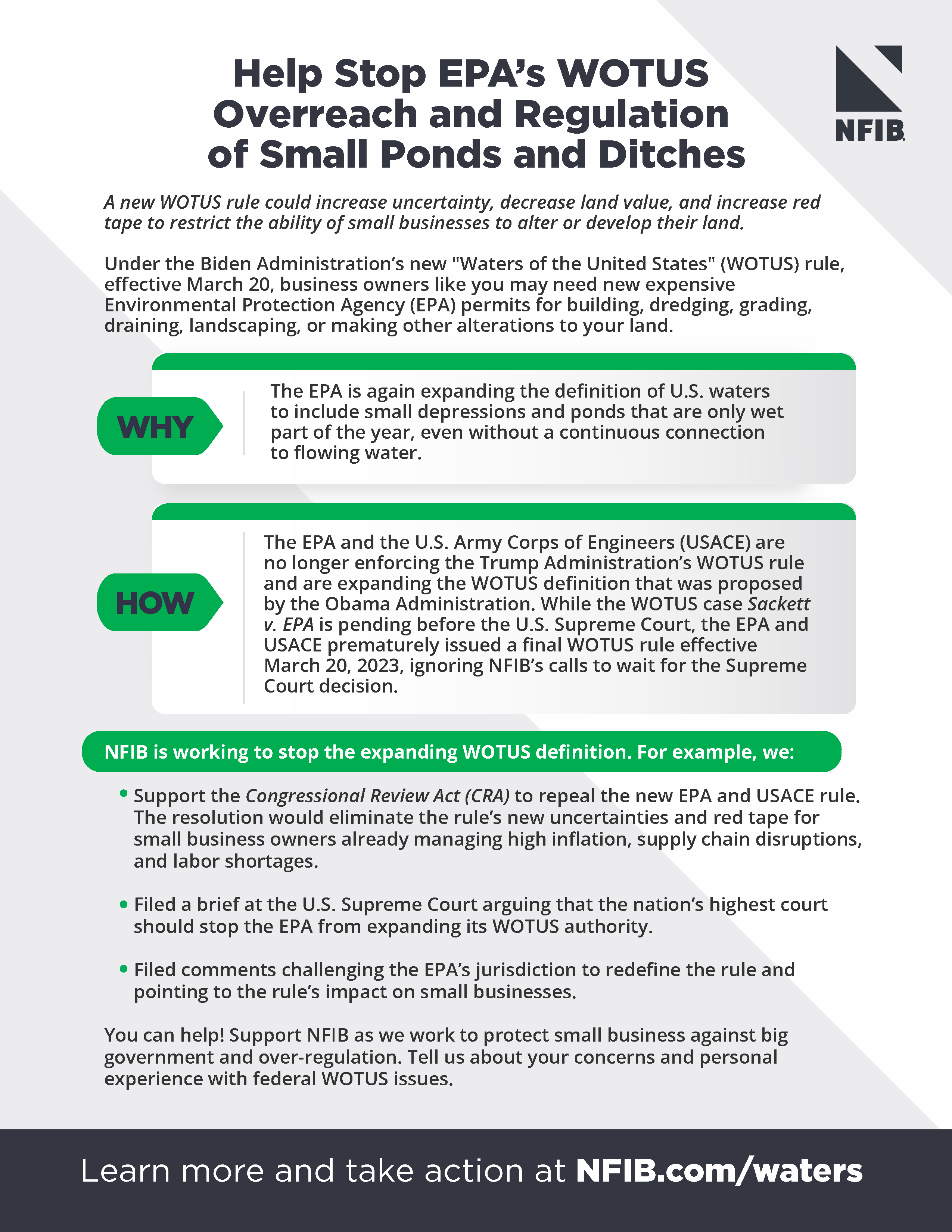Under the Clean Water Act (CWA), the federal government maintains regulatory authority over certain bodies of water. The Environmental Protection Agency (EPA) and U.S. Army Corps of Engineers are charged with enforcing the CWA, which it does under the “Waters of the United States Rule,” otherwise known as WOTUS. The rule determines which bodies of water are under federal jurisdiction. Over the years, federal bureaucrats and Democrat administrations have attempted to greatly expand what areas fall under WOTUS.
Any small business owner who owns land with any sort of water on it, no matter how minor, may be affected by WOTUS. That is because WOTUS determines whether portions of land that are occasionally wet – known as ephemeral water flow – may be safely developed or used without expensive and time-consuming federal permits. Other small business owners may be affected if their land is considered to contain “jurisdictional wetlands.” For more information, review the NFIB Small Business Legal Center’s WOTUS Explainer.








